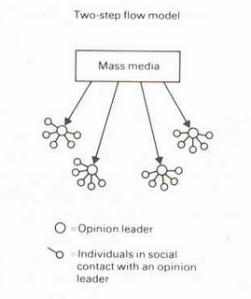Politics and PR: There’s Still Room for Both
I feel like I’ve deviated from my original intentions for this blog. The Beltway Perspective was created for the purpose of examining political issues in the context of public relations. I sought to establish a forum where I could separate the message from the issues, explore the communication components involved in political debates and determine how those components impact the public discourse. Recently, it’s been all politics and no public relations.
I found myself eager to reconnect this blog with its roots. So I embarked on a quest to find a story that represented the perfect blend between politics and PR. I defaulted to my trusted trio: The New York Times, The Washington Post and CNN, delving into those Web sites in search of the perfect story. After an hour or so, I came upon an interesting column with the headline “Obama Needs to Flex his Political Muscle,” written by Dana Milbank of The Washington Post.
Can anyone lend the President some tape to fix his glasses?
In his column, Milbank likens Obama to a “98-pound weakling [who] gets sand kicked in his face and responds with moot-court zingers.” He says he is bullied relentlessly by both Democrats and Republicans, but does nothing to defend himself.
He suggests that Obama take the Gordon Brown approach to politics – you know, Great Britain’s Prime Minister who is facing allegations of “shouting obscenities at his advisers, grabbing one by the collar, punching the seatback in his car, abusing switchboard operators and even forcing a secretary from her chair when she wasn’t typing fast enough.”
Milbank proposes that if Obama were to take the “it’s my way or the… I’m going to throw this hot coffee in your face way,” his political endeavors might find a happier resolution. While Milbank admits that Obama would be better suited to adopt a watered-down version of the Brown approach, he contends that both sides will beat on Obama’s policies until he decides to stop being the victim and adopts the role of bully.
I’ll be sending Milbank a “thank you” for helping me refocus. He might not realize it, but he touched on one of the most fundamental questions in public relations– when does perception become reality?
Polls: Exposing American stupidity one question at a time
According to a poll described on politico.com, “63 percent of Republicans believe Obama is a socialist; 39 percent think Obama should be impeached; 24 percent said Obama wants ‘the terrorists to win’; and 31 percent agreed with the statement that Obama is ‘a racist who hates white people.’”
The logical, well-informed individual would immediately dismiss these claims as ridiculous and irrational. But the “reality” is that nearly a quarter of Republicans believe that Obama actually wants the terrorists to win. These people did not come to this conclusion all by their lonesome. These beliefs were disseminated by Republican opinion leaders.
There is a communication theory that could explain this process of indoctrination. The two-step flow model suggests that opinion leaders listen to messages from the media, interpret those messages and redistribute them to the general public. According to this theory, public opinion is not really the opinion of the public, but rather the opinion of a select few influential individuals who dictate opinion.
Perhaps this model could better explain the relationship between opinion leaders and the public if it accounts for the fact that opinion leaders have become an extension of the media. Fox News attempts to distinguish between its pundits and news anchors, but the reality is that the lines are intentionally blurred. The same can be said for MSNBC and every other news network. Glenn Beck, Keith Olbermann, Bill O’Reilly and Rachel Maddow are all associated with the news, but all can be considered political opinion leaders.
When the textbooks don’t explain it, improvise
I think the two-step flow theory needs a face-lift. Our news is interpreted by the media that increasingly purports to convey points of view as fact, meaning that at least part of the flow of information is eliminated. Perhaps we should rename it the one-and-one-half flow model.
This new dynamic is dangerous. Traditional journalistic standards set up a clear line of demarcation between the reporting of news in a straightforward manner and commentary. That line has been substantially obliterated in recent years and the reality is that the media can no longer claim to be “fair and balanced.” Yet most people still believe it is.
On the surface, it would seem the Republicans have mastered exploiting this new communication model. They know that if it sounds newsy and controversial, it will get major face time in the world of news punditry. Thus, Obama is likened to a “black Stalin.”
Sound ridiculous? Of course it is, and it will be exposed as ridiculous once America realizes that this is what our political conversation has become. This is why I chose to discuss Milbank’s column. He argues that Obama needs to become the bully. I agree that Obama needs to become a little less complacent in his role as victim, but don’t believe that he needs to assume the role of aggressor.
Obama is an incredibly cerebral individual, and that’s something to be admired in this nation replete with reactionaries. I’ve argued before that we’re collectively too shortsighted; a trait that usually is to our detriment. Bush learned the hard way that acting on emotion lands you in Iraq for the better part of a decade and results in grandma getting a cavity search every time she enters an airport.
Revenge of the nerds
Obama knows that the politicians calling for his “socialist” head will be backtracking with their tails between their legs in a few months time when the government is not handing everyone their own hammer and sickle. Congressional representatives can survive to live another day after they’ve made fools of themselves – presidents can’t, and Obama knows that he cannot become enmeshed in this foolish game.







